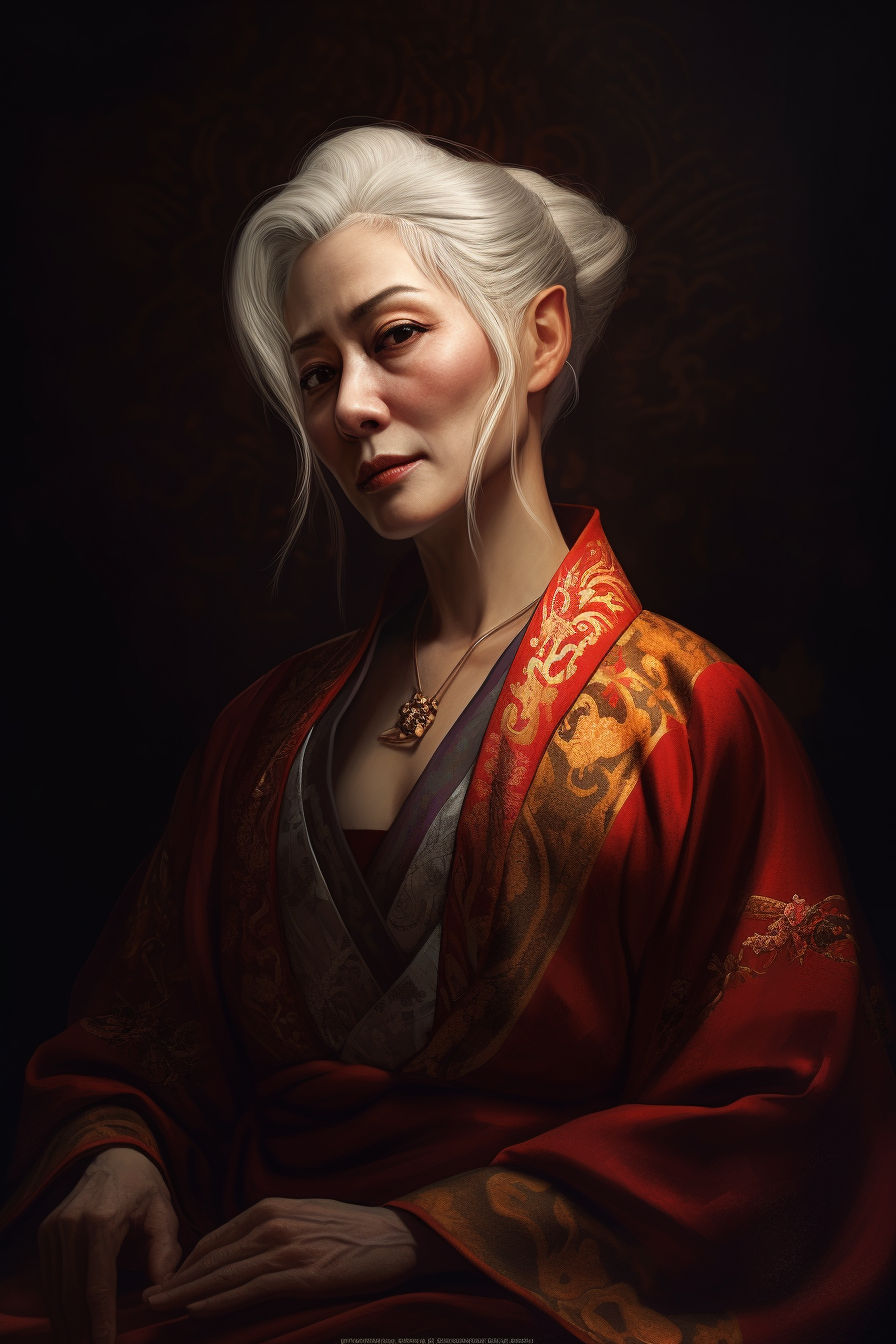Fumiye Hisakawa
1st of Sun's Swell, AE 721
Fumiye Hisakawa was born in AE 257 in Tsunika, the capital of what is today the Shiranai District of the Khairluutian Empire, but was then the largest city in the coastal region of the Hitomin Shogunate. As the eldest daughter of the noble Hisakawa family, Fumiye was known for her interests in the arts and literature, her exceptional education, and her beauty, earning her many suitors, and when she was thirty-five, she was married to Naokata Taira, a major general in the Hitomin military two decades her senior. Their marriage appeared a content one, having two daughters together by the time the Khairluutian invasion began in 339.
During the first two years of the war, Fumiye would only hear the details of her husband's exploits, of his ego, through reports from those who managed to survive them; entire battalions of soldiers dying in attempts to hold land that would confer them no strategic advantage, cities and crop fields razed to the ground rather than being allowed to fall to the enemy, and Naokata was not the only military leader who seemed determined to fight for his own deluded sense of honor rather than for his people.
Fumiye would send her daughters to live with friends abroad and join the war effort in early 342 under the guise of working as her husband's secretary. She would handle all his mail, relaying critical information from other leaders and transcribing his replies to them, learning the particulars of their speech patterns, the jargon they used, and studying their handwriting. It would take four months before she was confident enough to begin making her own substitutions. Played not just like a fiddle but like a violin soloist leading an entire concerto, she would order alterations in troop movements, ensure safe evacuations of cities, and if generals would insist upon "necessary sacrifices," Fumiye did everything in her power to make them go down with their ships. She would eventually negotiate a full surrender to the Khairluutian forces right under the noses of those who remained.

Post-War Period
What Fumiye did would only come out after her husband and a number of other military leaders fled the country, fearing repercussions for their actions during the war, leaving Fumiye with no more false identity to hide behind. Although she was prepared to accept whatever consequences may come, the Khairluutian Empire had long utilized policies that encouraged retaining certain local individuals in positions of power post-conquest, and they saw an opportunity in Fumiye. Fumiye was the first person chosen as a government representative of the Kitaku District, which occupies what were originally the northern reaches of the Hitomin lands that shared a border with the Khairluutian Empire. There is a statue erected for her in Hosa, the District's capital, as well as in her hometown of Tsunika. She would become an icon of modern Hitomin culture, exemplifying feminine grace, poise, levelheadedness, and the strength of the pen over the sword.Family Ties

Nene and Shio Hisakawa, c. 310 by illumiinae with Midjourney
Fumiye had two daughters with Naokata: Shio and Nene. Both began using their mother's family name shortly after the end of the war. Like her mother, Shio was active in politics throughout her life, contributing to and promoting the feminist movement throughout the Hitomin districts in the post-war years. Nene was a well known civil servant and philanthropist, working with the Empire and wealthy benefactors to provide and care for children displaced during the war. Neither ever married.






That author note box had me laughing and apple juice straight out the nose. Well played, well played indeed!
Thank you! And also I'm deeply sorry for the loss of your apple juice. I made a couple of memes for my summer camp pledge, so I'm tempted to try to do it for all my SC articles, but I'm not sure if they're all quite as meme-able. I'll give it my best shot, anyway.